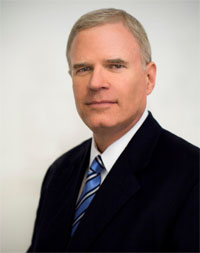Gay nominee politely labeled an ‘activist’ by GOP
A fourth openly gay nominee—one who has been fairly heavily involved in both gay and non-gay legal and political issues and who spent “hundreds of hours” doing pro bono work that led to the elimination of a gay ban on FBI agents—has gone before the U.S. Senate Judiciary Committee. The nominee’s gay-related history prompted the only Republican in attendance on his confirmation hearing to label the nominee an “activist.”
President Obama nominated Michael W. Fitzgerald in July to sit on the U.S. District Court for Central California. The office of U.S. Senator Barbara Boxer (D-Calif.), who recommended him for the position, sent out a press release,“If confirmed by the Senate,” said the press release, “Fitzgerald would make history by becoming the first openly gay federal judge confirmed to serve in California.”
Fitzgerald, 52, was one of five nominees considered during the hearing Tuesday. Senator Barbara Boxer introduced him to the committee, noting that he had served as a federal prosecutor on the Organized Crime and Drug Enforcement Task Force with the U.S. Attorney’s Office in Los Angeles, “where prosecuted international drug rings and money-laundering—including what was at that time the second largest cocaine seizure in California history.”
The American Bar Association, noted Boxer, had given Fitzgerald a rating of “well qualified” on a unanimous vote.
Durbin noted that Senator Dianne Feinstein (D-Calif.) had also submitted a “blue slip” in favor of Fitzgerald’s appointment.
Fitzgerald is a partner in Corbin, Fitzgerald & Athey, which bills itself as a “boutique litigation firm” specializing in white-collar crime and civil cases in his native Los Angeles.
The biographical information he sent to the committee lists his membership in four gay-related organizations: the Lesbian and Gay Lawyers Association of Los Angeles (no years of membership are identified), the Harvard-Radcliffe Gay and Lesbian Caucus (from 2006 to present), the Los Angeles Gay and Lesbian Center Leadership Task Force (from 2007-2008), and the Stonewall Democratic Club (“late-1990s”). The biographical information also indicates Fitzgerald participated in the campaign to defeat California’s same-sex marriage ban, Proposition 8,
He also notes that he spoke at a press conference about a settlement in the case of Buttino v. FBI, in which—in 1993—the Federal Bureau of Investigation agreed to stop banning openly gay people from serving as FBI agents.
Fitzgerald’s summary of the Buttino case, in response to the requisite Senate questionnaire, noted that Frank Buttino was an agent with the FBI who was “outed” by an anonymous source to Buttino’s supervisor. The supervisor stripped Buttino of his security clearance and, therefore, his ability to serve as an agent.
“At my request,” wrote Fitzgerald, one of his earlier law firms “Heller Ehrman decided to represent Mr. Buttino at trial on a pro bono basis. I obtained class certification and then represented Mr. Buttino and the class [of all gay and lesbian FBI employees] at trial.” After several days of trial, noted Fitzgerald, the FBI agreed to settle the case out of court. In doing so, the FBI, he said, “renounced its prior policy of viewing homosexuality as a ‘negative factor’ in regard to security clearance,” agreed to hire an openly gay agent, and restored Buttino’s pension.
Acting committee chairman Dick Durbin (D-Ill.) asked Fitzgerald about the Buttino case. Senator Mike Lee (R-Utah) described Fitzgerald as a “activist” but then quickly added that he does not “subscribe to the view that having been an activist in one area or another disqualifies anyone from ascending to the bench .…” But Lee said it was the committee’s duty to make sure nominees “know the difference between advocacy and jurisprudence” and will “not engage in any kind of political activism while on the bench.” He asked how Fitzgerald’s prior advocacy would affect him on the bench.
“Sir, I don’t believe that it would have any influence on my service as a federal judge,” said Fitzgerald. “…I would not bring any personal or political views to bear on any of the cases that I determined as a United States district judge.” He also said he is aware of the necessity to recuse himself not only when he personally believed there might be a conflict of interest but also when a “reasonable onlooker” might think so.
He indicates that he did not serve in the military “because men born between March 29, 1957, and December 31, 1959, were not required to register.”
He earned an A.B. magna cum laude from Harvard University in 1981 and graduated from the Berkeley School of Law in 1985. He clerked for 2nd Circuit U.S. Court of Appeals Judge Irving Kaufman and worked three years in the criminal division of the U.S. Attorney’s Office in Los Angeles.
The Senate Judiciary Committee’s ranking members, including the ranking member Charles Grassley (R-Iowa), were not present. Nor was ranking majority member Patrick Leahy (D-Vt.). Republican Senator Lee noted 85 percent of President Obama’s judicial nominees have been approved and that “comparatively generous treatment” treatment of nominees by the Republican side.
Acting Chairman Durbin quickly noted that Senate Majority Leader Harry Reid had needed to call for a forced vote (cloture) to try and put the nominations of 25 of those nominees on the floor.
Senators on the committee have a week to submit additional questions to the nominees in writing. The committee could vote on Fitzgerald’s nomination within a few weeks.



Leave a Reply